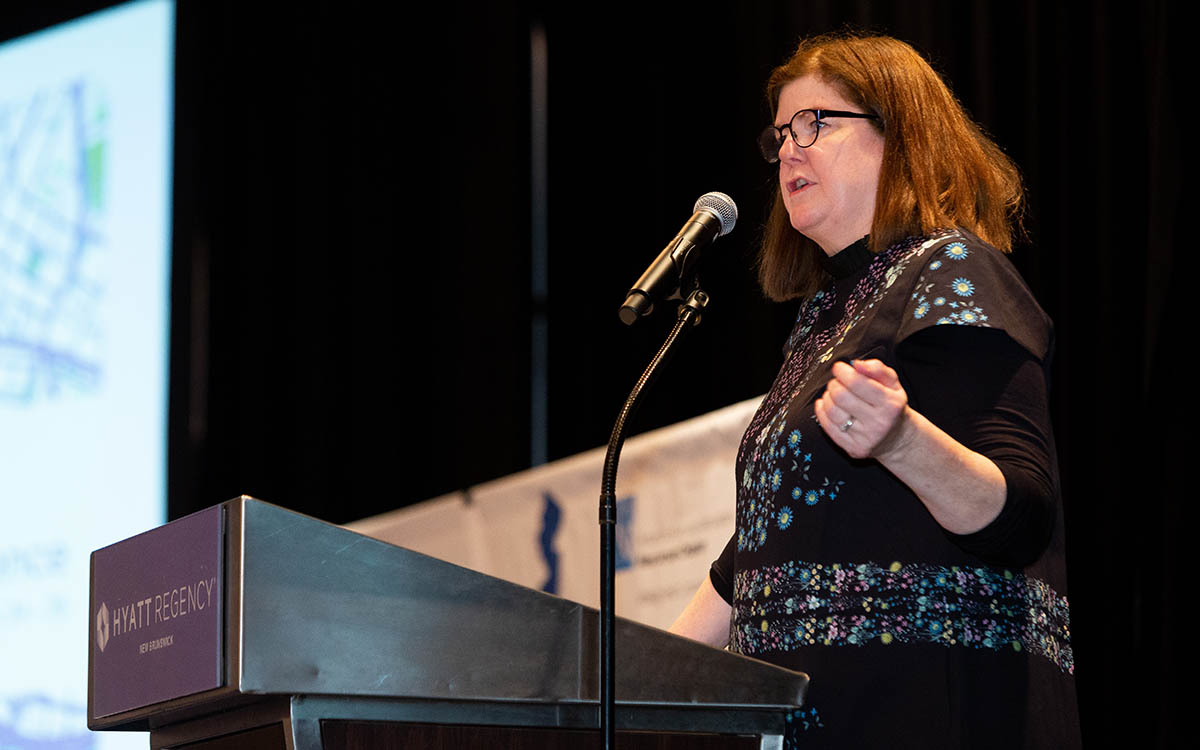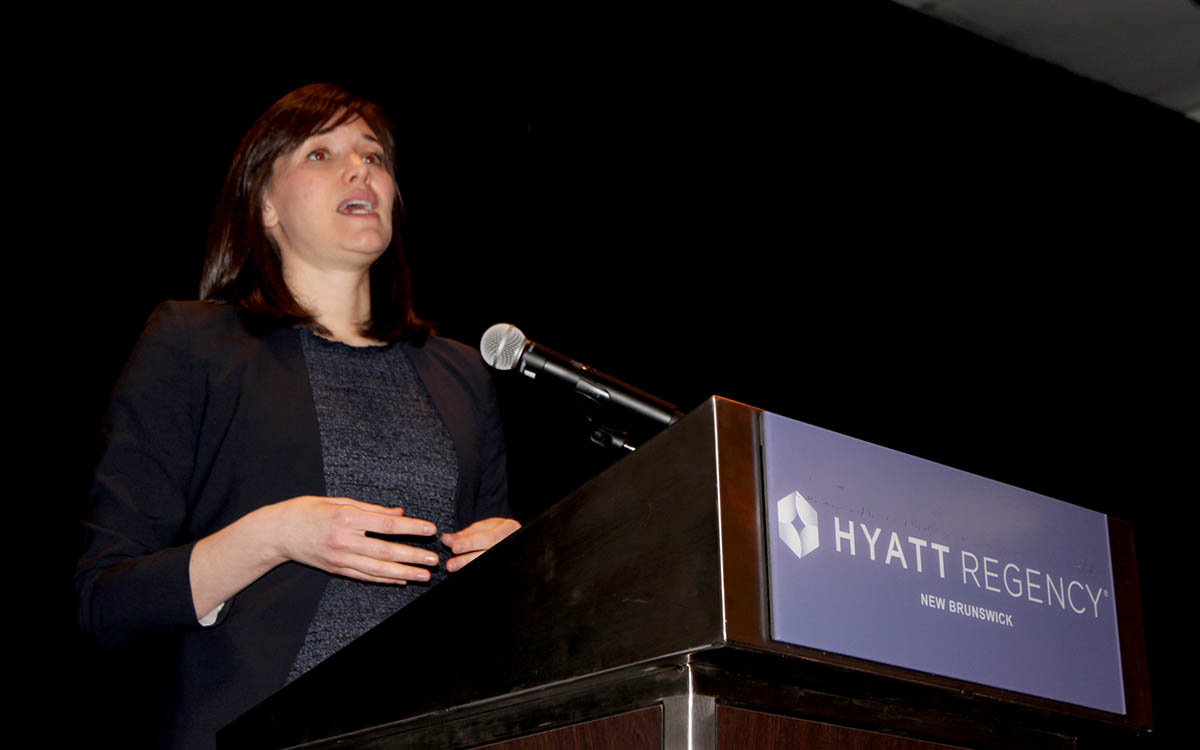by Cecille de Laurentis MPP/MCRP ’20
The inaugural Stuart Meck Distinguished Speaker Series on Land Use Law and Affordable Housing was held in conjunction with the American Planning Association New Jersey Chapter conference in late January. The lecture series, which honors the late Stuart Meck, former Bloustein School Associate Research Professor and director of the Center for Planning Practice, who passed away in April 2018.
Rachel Haot, the Executive Director of the Transit Innovation Partnership, kicked off the inaugural lecture series with a keynote on “Cities in the Digital Age.”
Ms. Haot’s presentation was in keeping with the theme of smart growth, one of Stuart’s passions. Formerly Chief Digital Officer under both Governor Cuomo and Mayor Bloomberg, Ms. Haot works to “make cities more people-centered through technology,” ensuring that cities to treat technology as an end in and of itself: “There is often this mythos around innovation as the Holy Grail…but [technology itself] is not the goal.” Rather, she said, organizations and governments should look for opportunities for change existing procedure, and see where new technologies fit in.
She provided several examples of projects she worked on and walked the crowd through how they happened on the organizational side. Many of us who travel to New York City regularly have noticed that free Wi-Fi has become more prevalent, and LinkNYC kiosks providing a Wi-Fi connection have been popping up. According to Ms. Haot, free and accessible Wi-Fi around the city was a priority demand of New Yorkers when asked what would make a difference in their daily lives. One way that this was realized was through a partnership between NYC and Google, which provided free Wi-Fi in the Chelsea area. LinkNYC kiosks, meanwhile, came from a project to replace the city’s antiquated and broken-down pay phones. Designers submitted ideas for pay phone replacements, one of which became LinkNYC.
Her advice for innovation in the workplace is to “give all the credit, take all the blame,” and not to be afraid to try new things and acknowledge those colleagues who took the leap with you, but own up to your mistakes if it doesn’t work out. Her presentation showed a few of the ways that new digital technologies could be integrated into urban development and improvement, and how behind-the-scenes ideas can transform into the everyday landscape around us.

Marya Morris, FAICP, introduced the inaugural Stuart Meck Distinguished Speaker Series on Land Use Law and Affordable Housing
Marya Morris, FAICP, introduced the lecture series with a tribute to Stuart Meck (PDF of remarks), who was her mentor. Ms. Morris has had a 25-plus year career in planning research, education, and private practice reminisced about Stuart courses, including the History and Theory of Planning, Survey of Planning Law, and Land Use Administration. “He was never afraid to bring daylight to the biggest challenges we face in the planning field.” She related an anecdote in which she traveled with Stuart to teach a seminar on land use planning in Prague, only for Stuart to have a medical emergency within the first couple of days of the trip. While he recovered without incident, Marya had to take over his seminars and stay in Prague with him until he had recuperated. In her words, she had to go from “riding the coattails of Stuart Meck” to standing in for him. Her tribute showed how much Stuart meant to his students and provided a moving introduction for those who didn’t have the chance to meet him.

